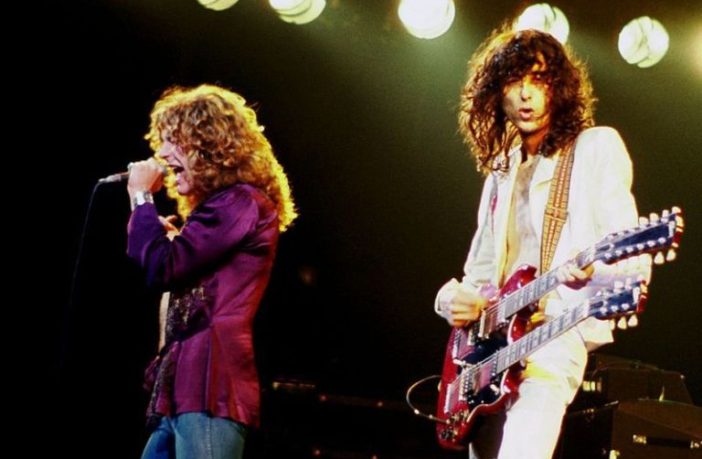Faroutmagazine
by Joe Taysom
Revisiting the moment that Jimmy Page and Robert Plant reunited Led Zeppelin in Marrakech, 1994.
The year of 1994 would mark the first time that Robert Plant and Jimmy Page would reunite on a new musical project together since the split of Led Zeppelin which, of course, was sparked by John Bonham’s death 14 years earlier. The duo headed to Marrakech for a special performance as part of MTV’s Unplugged which they appropriately renamed Unledded.
Morocco was a place of significant importance to both Plant and Page as it was the birthplace of Led Zeppelin’s wonderous hit ‘Kashmir’, a song that was inspired by a road trip the group undertook through the country with the track being initially titled ‘Driving to Kashmir’.
In a 2010 interview with MOJO, the former Led Zep frontman spoke about the origin of the classic: “‘Kashmir’ came from a trip Jimmy and me made down the Moroccan Atlantic coast, from Agadir down to Sidi Ifni. We were just the same as the other hippies really.”
The reunion was controversial as the two Led Zeppelin founders decided to leave out John Paul Jones, a plan which hoped to steer the project into a different entity. The decision, of course, didn’t go down well with Jones. During Led Zeppelin’s 1995 induction to the Rock and Roll Hall of Fame, he made this clear in abundance and caused a severely awkward moment when the band’s inner rift became apparent for the whole world to see. Jones, clearly still bitter about the situation, couldn’t help but joke upon accepting his award, saying: “Thank you, my friends, for finally remembering my phone number.”
The album and DVD feature which derived from these Marrakech sessions in which Jones was exiled from saw Plant and Page perform a mix of Zeppelin songs which they re-imagine with the assistance of an Egyptian ensemble cast. To add another unique spin on the material, the duo also recruited an Indian vocalist and the London Metropolitan Orchestra. On top of this, the pair recorded a trio of new songs with local musicians in the Moroccan capital.
Those performances saw the rock titans join forces with traditional musicians of the Gnawa minority, whose sub-Saharan ancestors were an oppressed tribe of people that were brought to Morocco many centuries ago as slaves.
“We’d never met the Gnawa when we went there,” said Plant in a 1994 interview, “but they were very patient, and smiling is a great currency.” Gnawa music is traditionally performed for prayer and healing and differs from other North African music. “They play a kind of music which is much more akin to the music of the Mississippi Delta than it is to do with Arab music,” Plant would later say in another conversation. “It’s haunting, seductive, and quite alluring.”
The results of Page and Plant‘s desire to collaborate with the Gnawa musicians led to three gorgeous songs. The recordings show off their versatility and help explain, in part, why they wanted this project to be its own entity by not including Jones.
Listen to ‘City Don’t Cry’, ‘The Truth Explodes (Yallah)’ and ‘Wah Wah’, below.







